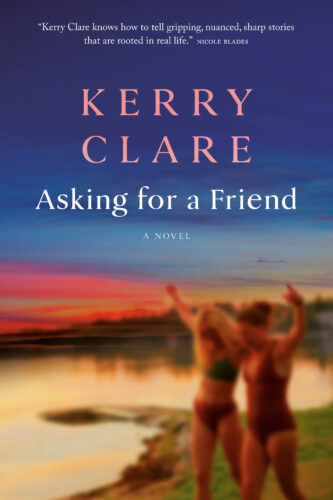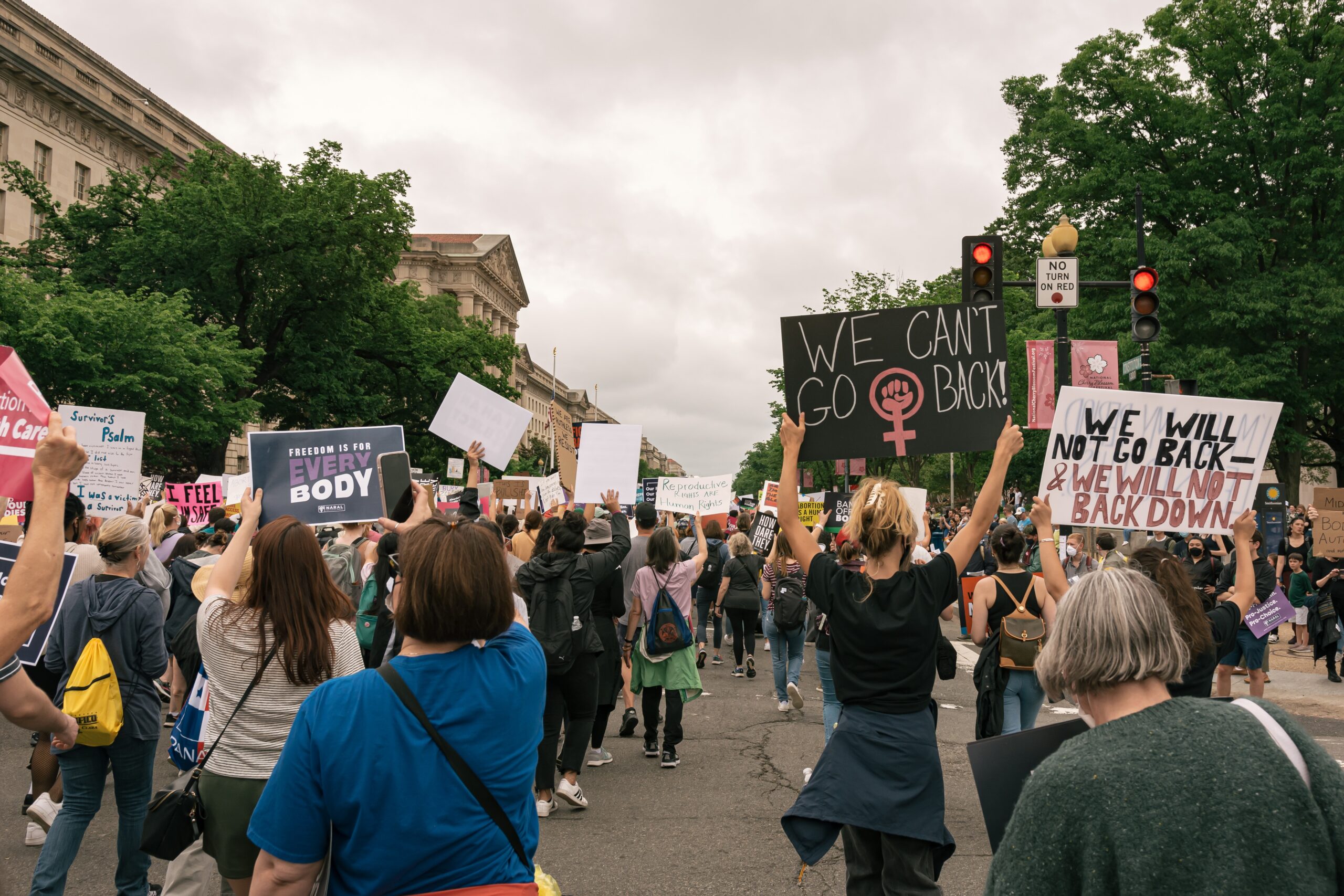Last year on my 43rd birthday, I was down to the wire on the deadline for the final draft of my third novel, Asking for a Friend. I happened to be hanging sheets on a clothesline while listening to a political podcast when I learned that US Supreme Court Justice Clarence Thomas’s birthday had taken place just the day before and that he and his colleagues had celebrated by reversing a New York State law restricting guns on public transit. I rolled my eyes at this news, continuing down the line but—somewhere between the folded and the fitted sheets—I paused to refresh my Instagram feed, because it was my birthday, and friends were sending greetings, and it was here where I learned that Roe Vs. Wade had just been overturned, ending a half-century of US federal law protecting abortion rights across the country.
The overturning of Roe vs. Wade seemed like Clarence Thomas’s most devastating gift to me, one I was taking very personally, first because how does a person spend a birthday after news like that? But also, and especially, because this happened to be the twentieth anniversary of the birthday I’d spent accidentally pregnant, though I didn’t know it yet, a situation from which only the mercy of abortion would deliver me about six weeks later, and I owe everything that’s happened in my life ever since to the freedom to make that choice.
I don’t live in America. The road toward reproductive justice in Canada (albeit primarily for white middle class women like myself) has been a different story—the best thing about it I’ve ever read is Karin Wells’ The Abortion Caravan, involving a cross-country journey, a coffin delivered to the Prime Minister’s doorstep, and furious women chaining themselves to chairs in the House of Commons, eventually shutting down Canadian government for the first time in history.
And so for me, the overturning of Roe Vs. Wade was symbolic, would likely have no bearing on my own personal experience, or that of my daughters. And yet… I think about the other people who’ve made a similar calculation, only to have vital healthcare denied to them when things go wrong during wanted pregnancies, or people in supposedly-safe “blue states” unable to access abortion pills based on the arbitrary whims of some guy named Matt who lives in Florida, or what it might mean that a Conservative MP in my own country was bringing forth Bill C-311, a sneaky anti-abortion law increasing penalties when a pregnant person is a victim of violence.
My novel opens with the sentence, “Every time Jess was pregnant, Clara had been the first to know.” Unlike a lot of other parts of Asking for a Friend, which I’ve been writing since 2015, this line has never changed, my portal into a story in which an accidental pregnancy and then an abortion happen to be—instead of a juicy plot twist or an invitation toward inevitable doom—the beginning of everything, a rich and beautiful friendship and two intertwining lives in the decades to follow as my characters grow up, make mistakes, fall in love, fall apart, and get married, become mothers, and even keep growing, learning and changing after that.
Abortion was always the beginning of my story, but until last year, on my birthday, my laundry drying in the sun with my heart so impossibly shattered, I didn’t know the ending. But then, thanks to Clarence Thomas and the Dobbs decision, I finally figured it out. Because there is truly nothing more important or fundamental that a novel about women’s lives could be about right now.
“I’ve been reading the news,” says Jess now, late in the story, greeting Clara and her family as they arrive at her cottage during the summer of 2018. “I have to say it’s kind of ominous. They’re appointing a new Supreme Court Justice and his name is Brett.” She goes on to say that he’s “pro-life,” another one. “They’re chipping away, little by little, bit by bit. All those things we took for granted.”
Abortion, the alpha and the omega, the reason I’m here, the reason my children are here, the thing that makes motherhood meaningful at all, because it makes motherhood a choice, instead of a penance. A choice being stripped away from millions of women thanks to the zealotry of a few, and a council of justices—including the decidedly fallible Thomas, my almost birthday twin—whose rulings have been anything but just.
Our stories are our power, and we have to keep wielding them. One year later, we’re only getting louder.

Kerry Clare’s third novel, Asking for a Friend, will be published on September 5 2023 by Doubleday Canada.



 Follow Us On Instagram
Follow Us On Instagram
